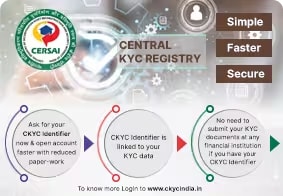Enjoy Zero Charges on All Commonly Used Savings Account Services
- About Us
- MD & CEO letter about the bank
- MD & CEO
- Our History
- Letter to Shareholders on the 1st Annual Report after Merger
- Letter to Shareholders on the 2nd Annual Report after Merger
- Letter to Shareholders on the 3rd Annual Report after Merger
- Letter to Shareholders on the 4th Annual Report after Merger
- Board of Directors
- Awards & Accolades
- News Room
- Investors
- Careers
- ESG
-
Customer care hotlineCall 1800 10 888
-
As per amendment in the Income Tax Rules, PAN or Aadhaar are to be mandatorily quoted for cash deposit or withdrawal aggregating to Rupees twenty lakhs or more in a FY. Please update your PAN or Aadhaar. Kindly reach out to the Bank’s contact center on 1800 10 888 or visit the nearest IDFC FIRST Bank branch for further queries.
-
-
FinFIRST Blogs
If you are considering applying for a home loan or have done so recently, you would have come across two options: floating interest rate and fixed interest rate. Each of these is popular in its own way and has some unique advantages. However, given the increasing costs of loans right now, some experts believe it may be better to stick to a fixed interest rate loan.
Let us learn the difference between fixed and floating interest rates and how you can decide which is the right choice today.
Floating vs fixed rate Home Loans
If you opt for a home loan with a fixed interest rate, the rate of interest stays the same throughout the loan tenure. For instance, if you apply for a loan of Rs 50 lakh with a fixed interest rate of 8%, you will pay an 8% interest on all your Equated Monthly Instalments (EMIs) until the end of the term. The rate will remain unchanged.
On the other hand, if you select a floating interest rate, the rate of interest will vary throughout the loan term, depending on the market forces. So, your EMI payments will differ according to the prevailing rates. When the interest is low, you will pay a lower EMI; when the interest is high, you will pay more. There is no fixed value, and the overall cost of your loan will fluctuate.
Reasons to choose a fixed rate Home Loan
As an inflation outcome, the Reserve Bank of India (RBI) increased the repo rate by 90 basis points (bps) in May and June 2022. The country is going through a high inflationary period, and increasing the repo rate is a measure to control its impact. Some financial experts expect another 50-75 bps hike in the coming months if inflation rises further.
The rising interest rate regime can be problematic for those saddled with a floating interest rate. When the RBI increased the repo rate with a 40 bps hike in May, the lowest home loan interest rate rose from 6.8% to 7.2%. In June, a hike of 50 bps increased the lowest interest rates from 7.3% to 7.7%. If the repo rate increases by 50-75 bps, the lowest home loan rates can go up to 8.5%.
When interest rates rise, lenders pass on the burden of high prices to borrowers. This usually translates to two options for the latter: a bigger EMI or longer loan tenure. Both options can be restrictive, leading to frugal living and difficulty in making ends meet. It can also dissuade buyers from purchasing a home or investing in the real estate sector.
Generally, a floating interest rate loan is recommended when the rates are expected to drop. This way, you can save money over time. However, given the present scenario, this is not likely to happen anytime soon. So, it may be better to opt for a fixed interest rate at the moment. A fixed interest rate can have several advantages, as listed below.
Pros of Home Loan fixed interest rates
- It's Easier to Plan: When you know the rate of interest on your home loan, you can easily plan your future EMIs. Since the value is fixed, managing your monthly budget is simpler. Moreover, you have greater control of your finances and can plan your expenses better.
- No Surprises in Store: If the home loan interest rate is fixed, you know exactly how much money you will pay throughout the loan tenure. There are no surprises along the way, and you can be stress-free. Your home loan interest will remain the same regardless of changing market forces such as inflation. So, you can automate your repayments with your savings account without actively monitoring the rate.
- Avail of Lower Rates: If you have a high credit score, earn a stable income, and have been consistent with payments in the past, lenders are more likely to offer a lower interest rate for your home loan. If you are able to get a good deal, you can benefit from sticking to the fixed interest routine. The rate of interest will remain low for the entire term, and you will save money in the long run.
What to keep in mind when choosing a fixed interest rate Home Loan
Here are some things to keep in mind when considering a fixed interest rate regime.
- The rate of interest is generally higher by 1%-2.5% for fixed interest rates than for floating rates. So, it may seem as if the former is the more expensive of the two. However, in most cases, the overall costs even out in the end.
- If you select a fixed interest rate for your home loan, you will incur prepayment and foreclosure charges if you decide to close the loan before time. On the other hand, floating rate loans come with no prepayment or foreclosure fees.
- You can switch from a floating to a fixed interest rate regime if you wish and vice versa, but you may have to pay up to 2% of the total loan amount as a conversion fee. Discuss this option with the lender before making a choice.
- Increased interest rates by the RBI is a way to tame inflation. These are temporary and are likely to be revoked when inflation goes down. Home loans are long-term loans. So, the interest rates would go down eventually during the loan tenure, offering home buyers a respite.
Conclusion
The choice between a floating and a fixed interest rate is entirely yours. Both options have their pros and cons, but a fixed interest rate home loan is advised in the current scenario of inflation and increasing interest rates. So, don’t delay your home purchase or stress over high rates. Instead, try to maintain a good credit score and apply for an IDFC FIRST Bank Home Loan for competitive fixed interest rates on home loans starting from just 8.45%.
Disclaimer
The contents of this article/infographic/picture/video are meant solely for information purposes. The contents are generic in nature and for informational purposes only. It is not a substitute for specific advice in your own circumstances. The information is subject to updation, completion, revision, verification and amendment and the same may change materially. The information is not intended for distribution or use by any person in any jurisdiction where such distribution or use would be contrary to law or regulation or would subject IDFC FIRST Bank or its affiliates to any licensing or registration requirements. IDFC FIRST Bank shall not be responsible for any direct/indirect loss or liability incurred by the reader for taking any financial decisions based on the contents and information mentioned. Please consult your financial advisor before making any financial decision.
The features, benefits and offers mentioned in the article are applicable as on the day of publication of this blog and is subject to change without notice. The contents herein are also subject to other product specific terms and conditions and any third party terms and conditions, as applicable. Please refer our website www.idfcfirstbank.com for latest updates.


 What's special about us
What's special about us




















